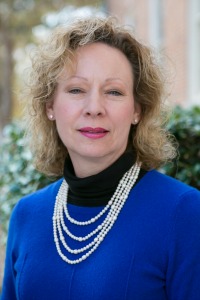
In 2014, Samford University’s Orlean Beeson School of Education was selected to participate in a federally funded project, Project Alabama Consortium for Turnaround (PACT). This fall, Jane Cobia, professor of educational leadership and Samford University project liaison, received notice that the project was granted an extension. Total funding exceeds $1.9 million.
The project is a collaboration between the Alabama State Department of Education, the University of Alabama, Auburn University and Samford University, and in conjunction with Edwards Educational Services and Council for Leaders in Alabama Schools.
Studies show that there is a diminishing number of qualified candidates compared to the growing number of administrative jobs in Alabama, particularly in rural and high needs systems. The goal of Turnaround PACT is to attempt to implement a coordinated and sustained school leader training program that prepares candidates and then provides on-going support.
Each university developed and implemented a curriculum that focused on the identified research-based needs of the school leaders. Cobia’s curriculum focused on students earning an instructional leadership certification and developing their leadership skills through mentorship and professional development opportunities.
Samford’s 10 participants enrolled in Orlean Beeson School of Education’s Master of Instructional Leadership program and completed the traditional plan of study to earn their instructional leadership certification. Cobia also pursued high-quality mentorship opportunities and professional learning experiences for her candidates.
“I personally feel one of the most vital tools, yet a commonly overlooked resource, is mentorship,” said Cobia. Cobia established partnerships with districts to design clinical experiences that reflected the real work of school principals. She feels that mentoring is an essential skill that can develop the leadership and communication skills of both the mentor and the mentee.
Mentor Frances Finney, principal of Fultondale (Alabama) Elementary School, enjoyed watching her mentee grow. “When we first met, she was hesitant to even ask a question, but as time went by, she began to open up and I was astounded by the depth of her thinking and knowledge…it challenged me to rethink things I had been doing for years.”
Cobia’s qualifications for mentor matching were simple but strategic: all mentors must have successfully led a Turnaround school and mentor must be located in a different district, minimally 50 miles from the mentee. “I wanted the mentees to feel comfortable discussing problems and different situations,” said Cobia. Through trusting, open discussion mentees were able to learn from colleagues in their field who held valuable knowledge through experience.
The mentorship pairings were so successful that Cobia is collaborating with fellow Samford University instructional leadership professor Julie Hannah to replicate the aspects in a mentorship program called “Mentors for Aspiring Principals.” The pair believes that mentoring is the bridge from preparation to practice.
In addition to the mentorship pairings, participants also had other professional development opportunities.
“Our goal was to take untapped teachers with leadership potential and build their capacity to be effective leaders,” said Cobia. Thanks to the additional grant and program extension, three of the 10 initial candidates have been recruited and enrolled in Samford’s education specialist in instructional leadership program; the first step in earning a doctorate in educational leadership.
A three-part series of books is being published about the national Turnaround School Leaders Program and Alabama is the first book in the series, which will be released in spring 2018. Because of the incredible results from Cobia’s mentorship structure, she contributed a chapter on mentoring and coaching.
“This project solidified the importance,” said Cobia. “Mentoring is a critical component to a successful program and it is now part of all master level programs of study at Samford’s education school.”
